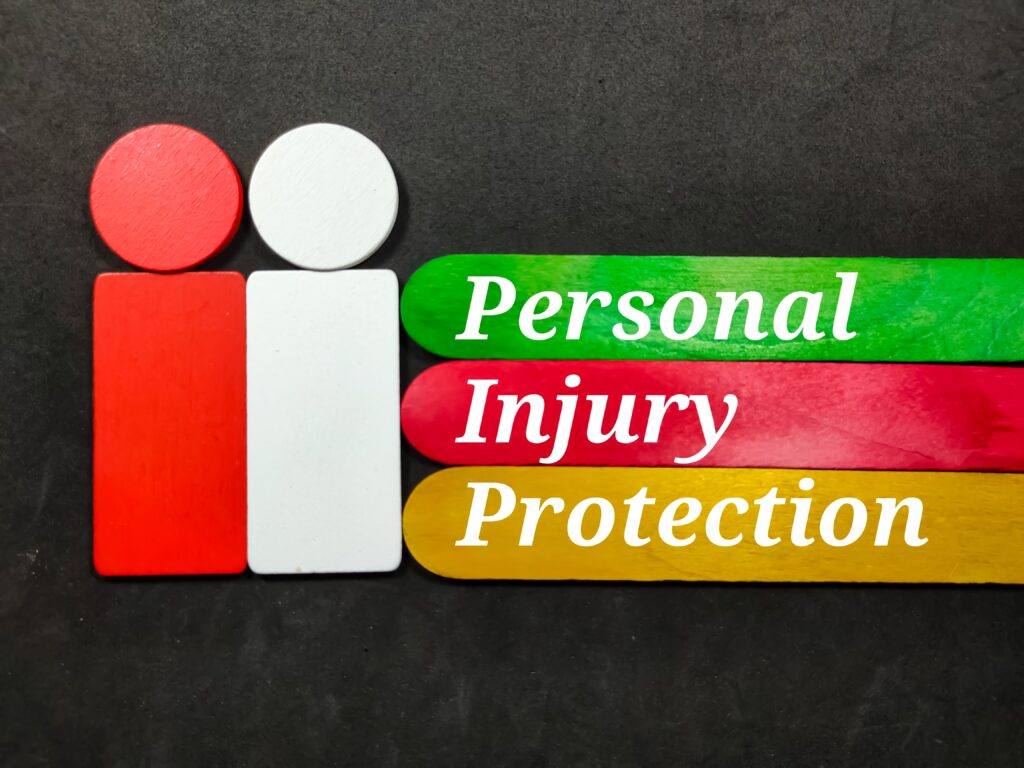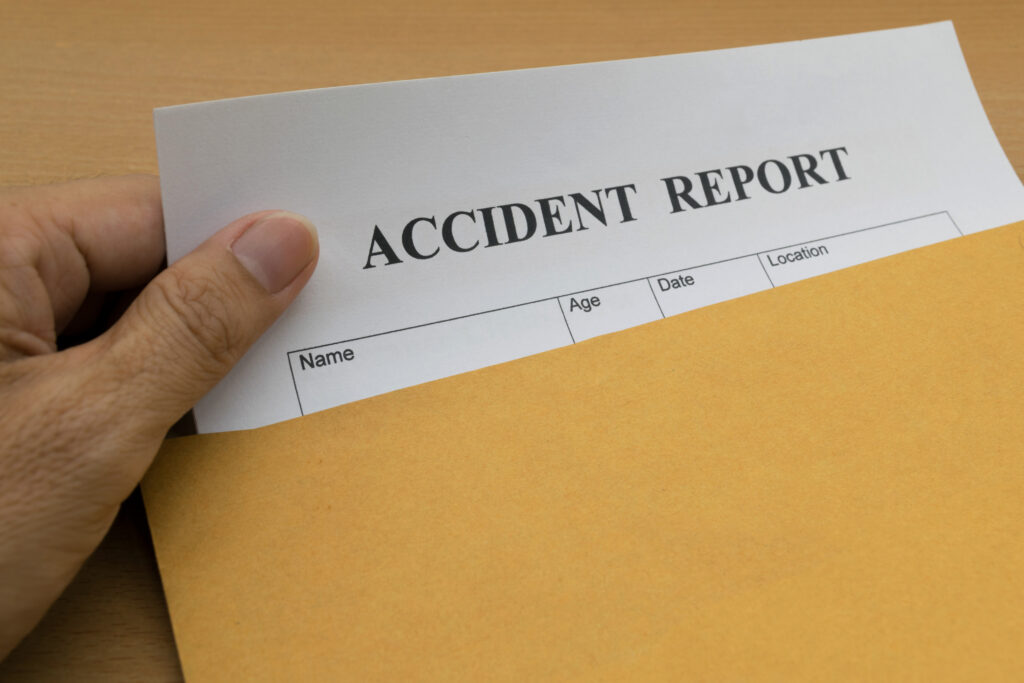Getting into a car accident is one of the scariest things that can happen to a driver. Personal injury protection insurance (PIP) provides a safety net for Florida drivers by helping them recover their accident-related losses.
Contact a car accident attorney in Tampa, Florida if you sustained injuries in a car accident. A Florida car accident attorney can assist you throughout the claims process. A lawyer experienced in PIP claims can maximize your benefits and avoid hassles from your insurance company.
Where Do Florida Car Accidents Happen?

While car crashes can happen anywhere, some places are particularly vulnerable to collisions. Florida has a booming tourist industry. The heavy traffic increases the chances of car crashes.
The most common places for car accidents include:
Highways
- Intersections
- Parking lots
- Entertainment venues
- Tourist destinations
- School zones
- Construction zones.
What Is Florida PIP Coverage?
PIP stands for Personal Injury Protection and is a type of car insurance that every Florida driver must carry. PIP covers medical expenses and lost income up to a certain amount for drivers and passengers after a traffic accident.
PIP coverage has two components: medical or disability benefits and death benefits. Florida law requires drivers to carry a minimum of $10,000 in medical and disability benefits. Drivers must also have a minimum amount of $5,000 in death benefits.
Do I Need PIP Coverage in Florida?
Yes, as a Florida driver, you need PIP insurance coverage. Florida is a no-fault state, which means each driver turns to their own insurance company to cover their damages after a car crash, regardless of fault. PIP coverage allows each party to rely on its insurance policy and every Florida driver must have PIP coverage in their auto insurance policy.
PIP coverage is not the only insurance coverage required by Florida state law. All Florida drivers must carry PIP insurance and property damage liability coverage (PDL).
PDL insurance covers damage that you caused to another driver's vehicle. Florida insurance providers must issue policies, including PIP and PDL coverage, to maintain state licensure.
What Other Florida Insurance Coverages Should I Consider?
PIP and PDL are mandatory for all Florida drivers. However, it's important to consider other types of coverage. Expanding your insurance coverage can help protect you after an accident. The following types of coverage work with PIP and PDL to protect Florida drivers:
Collision and Comprehensive Coverage
Collision and comprehensive coverage pay for damages to your vehicle up to policy limits. Collision and comprehensive coverage covers damages caused by a car accident, theft, or natural disaster.
Bodily Injury Liability Coverage
If you are responsible for causing a car accident, Bodily Injury Liability (BI or BIL) Coverage pays for the medical costs of the people injured in the accident, not including yourself. If the other party dies as a result of the injuries they sustained in the accident, BIL will help pay for associated funeral costs. BIL Coverage is required in most states but not in Florida.
Uninsured and Underinsured Motorist Coverage
You can access your insurance policy's uninsured or underinsured motorist coverage if you get injured in an accident that another driver with inadequate or no insurance caused, and your PIP insurance does not cover your losses.
What Does Florida PIP Insurance Cover?

PIP insurance covers certain losses after a crash, including reasonable and necessary accident-related medical expenses, lost income, and death benefits. PIP insurance coverage protects you even if you are responsible for the accident.
Examples of medical expenses that PIP coverage pays can include:
- Emergency medical services
- Inpatient and outpatient hospital services
- Costs of rehabilitative and ongoing care
- Prescription medicine
Your PIP coverage will pay for the following, up to your policy limits:
- Eighty percent of accident-related medical expenses
- Sixty percent of lost income
- $5,000 for each person covered under the policy who dies as a result of the traffic crash
Who Does Florida PIP Insurance Cover?
PIP insurance is unique because coverage extends beyond the policyholder. Your PIP policy will cover the driver's accident-related losses, passengers, and pedestrians.
Additionally, PIP covers members of the policyholder's household. Passengers without PIP coverage, perhaps because they do not own a car, get covered by the policyholder's coverage. Any passengers with PIP coverage can use their policy to pay for their losses.
Do Non-Residents Need PIP Coverage in Florida?
Yes, even drivers who do not live in Florida must get PIP coverage under certain circumstances. A driver must have PIP insurance coverage if they regularly work in Florida.
Parents with a child registered to attend a public school in Florida must have PIP car insurance coverage. Drivers must have PIP insurance within ten days of registering their child for school or starting their job.
Is Florida PIP Coverage Different From Health Insurance?
PIP and health insurance differ and cover different things. Health insurance might not cover accident-related lost income or services you provide to your family or spouse, which PIP can cover.
What Is Florida Extended PIP Coverage?
Florida state law requires drivers to have a minimum of $10,000 in PIP coverage, making it one of the cheapest states to afford car insurance. However, maintaining minimum coverage can leave you vulnerable to significant financial losses if losses exceed your policy limits after an accident. Insurance companies give the option to purchase more or extend PIP coverage.
Extended PIP coverage covers 100 percent of medical expenses and 80 percent of lost income after a traffic accident. Extending coverage may help protect you if a severe accident causes expensive medical bills or other losses.
How Do I File a Florida PIP Claim?
Accident victims must act quickly to receive their PIP benefits. Accident victims must see a medical provider within 14 days of the crash. PIP medical providers include physicians, dentists, hospital staff, and a hospital-owned facility.
After the initial appointment with a PIP medical provider, the accident victim's doctor will determine whether they have an emergency medical condition. An emergency medical condition includes an injury that seriously affects the patient's long-term or short-term health and bodily function or causes dysfunction in the patient's organs. An accident victim diagnosed with an emergency medical condition is eligible for benefits up to $10,000.

Florida law gives insurance companies 60 days to investigate the cause of your accident. Insurance companies use this time to respond to the numerous instances of insurance fraud throughout the state.
It is a good idea to seek legal counsel before you file a PIP claim. There are times when filing an insurance claim is seamless, but unfortunately, that is not true for everyone. Having an attorney reassures you that your insurance companies will not take advantage of you.
Do I Have to Pay Back PIP Coverage in Florida?
Whether you must repay PIP in Florida depends on whether you were driving a personal or commercial vehicle when the accident happened. Private vehicle owners do not need to repay PIP after filing a claim.
Commercial vehicle drivers can be required to repay their insurance company for a PIP claim under certain circumstances allowed by Florida Statute section 627.7405.
Does Filing a PIP Claim Increase My Insurance Rates in Florida?
Many drivers dread filing an insurance claim because they fear increased monthly premiums. Increased insurance rates and the potential of getting your policy canceled are reasonable fears.
Using your PIP coverage should not affect the price or your premiums or put your policy at risk for cancellation.
Getting an attorney is always a good idea, especially if you have concerns about filing a PIP claim affecting your insurance policy and premium rates.
What If My Injuries Are More Than Ten Thousand Dollars?
If PIP insurance is insufficient, you can file a lawsuit to recover the remainder of your losses. Florida law permits injury victims to sue the liable defendant to recover their remaining damage after exhausting their PIP insurance policy.
Florida limits who may sue to recover beyond PIP policy limits. The purpose of requiring every driver to carry PIP insurance is to reduce the number of lawsuits filed across the state after a car accident. However, Florida law allows injured people to sue if their injuries caused severe disfigurement or death. The victim can sue regardless of severity if the loss is over $10,000.
An accident victim may also have grounds to sue for emotional pain and suffering. Your attorney aids in filing a personal injury lawsuit to recover remaining losses and pursue compensation for emotional distress.
Do I Need an Attorney to File a PIP Claim?
In Florida, accident victims must file a claim with their insurance after a traffic crash. You might think they will not take advantage of you because you are working with your insurance company and have a business relationship.
Unfortunately, that is not true. Insurance adjusters focus on saving the company money, even if you get a bad deal.
Having an attorney helps you avoid underhanded insurance company tactics. Your attorney will protect you from lowball settlement offers, blame-shifting, and other strategies that insurance adjusters use to avoid paying the claims they owe to injured people.
An attorney will promote your best interests and ensure you do not leave any money on the table after a car accident.
What Is My Florida Car Accident Claim Worth?
No law firm can guarantee its clients the worth of their car accident case. The settlement value of a car accident claim depends on the facts surrounding the case. A reputable attorney will review the facts of your case with you and use their experience and knowledge to determine the value of your case.
Some key factors affecting your case's value include the cost of medical bills and treatment. Accident victims sometimes need ongoing treatment, and the cost of long-term care may increase the value of the settlement. Other contributing factors can include lost income and mental or emotional trauma.
What To Do After Getting Into a Car Accident in Florida
Carefully consider the steps you take after getting into a car accident. For example, be sure to always follow the treatment plan that your doctor gives you. Following the treatment plan prevents insurance companies from claiming that your injuries are not legitimate.
Remember the importance of keeping receipts for prescriptions, vehicle repairs, and anything else you paid for out of pocket because insurance companies consider these expenses in settlement offers.

You should get a copy of the police report. The accident report contains the officer's opinion on how the accident happened.
Finally, keeping a journal about your feelings and emotions following the crash can help your attorney understand your mental trauma and advocate for recovery from emotional distress.
Bringing all of the above information to your first consultation is important. With this information handy, the attorney who meets with you can evaluate your claim to understand how the accident happened and what compensation you deserve.
Contact a Florida PIP Attorney Today
Operating under a no-fault system in Florida mandates working closely with your insurance company following a car accident. However, the loyalty in consistently paying premiums to your insurer doesn't necessarily safeguard against potential resistance from the company in the aftermath of an accident.
Your attorney serves a vital role in shielding your legal rights post-crash. Partnering with a legal advocate stands as the primary stride toward securing complete compensation after sustaining injuries in a car accident.
Contacting a Florida PIP insurance attorney today can prove instrumental if you have experienced an injury in a Florida car accident. They can navigate the intricacies of your case, advocate for your rights and assist in pursuing the compensation you deserve.